Tire and tire pressure checks
1. Periodic inspection of the tires may spare you from the inconvenience of being stranded with a flat tire. It can also provide you with vital information regarding possible problems in the steering and suspension systems before major damage occurs.
2. Tires are equipped with 1/2-inch-wide bands that will appear when tread depth reaches 1/16-inch, at which point they can be considered worn out. Tread wear can be monitored with a simple, inexpensive device known as a tread depth indicator (see illustration).
i.2 A tire tread depth indicator should be used to monitor tire wear — they are available at auto parts stores and service stations and cost very little
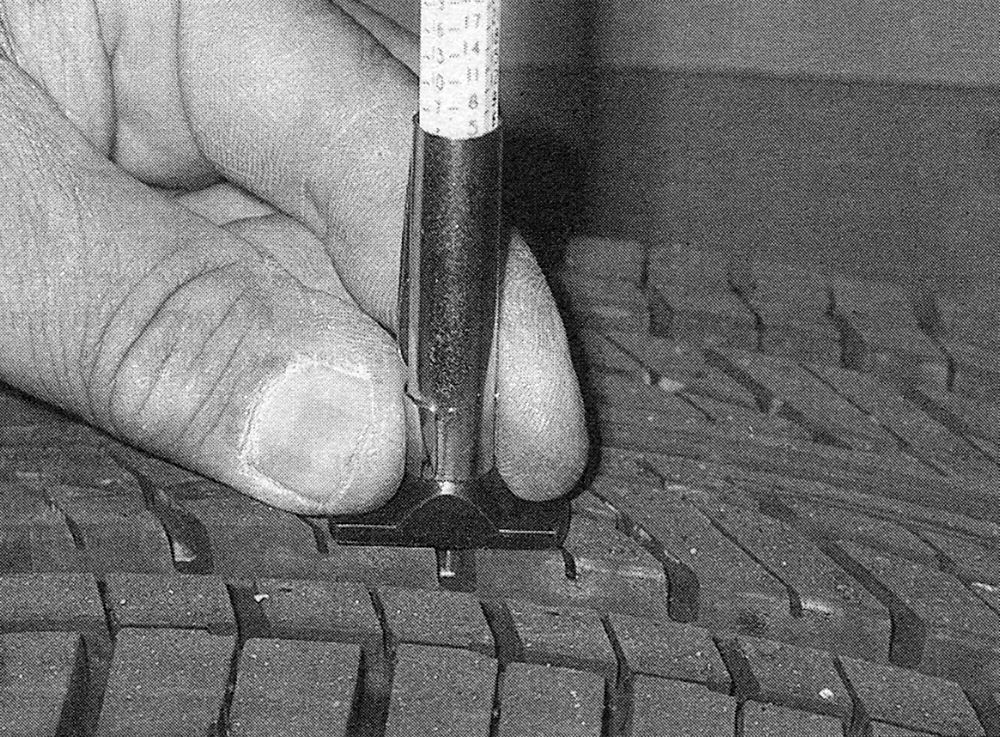
3. Note any abnormal tread wear (see illustration). Tread pattern irregularities such as cupping, flat spots and more wear on one side than the other are indications of front end alignment and/or balance problems. If any of these conditions are noted, take the vehicle to a tire shop or service station to correct the problem.
i.3 This chart will help you determine the condition of your tires, the probable cause(s) of abnormal wear and the corrective
action necessary
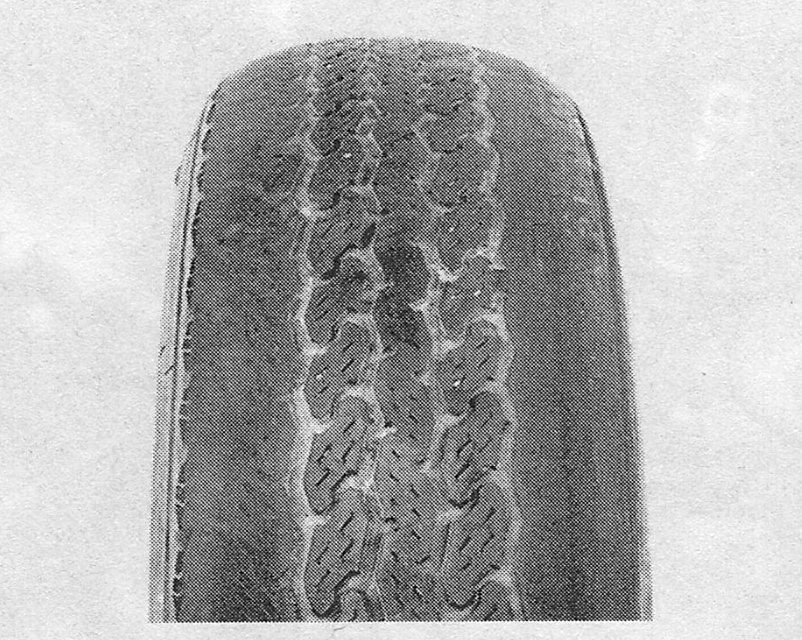 UNDERINFLATION
UNDERINFLATION
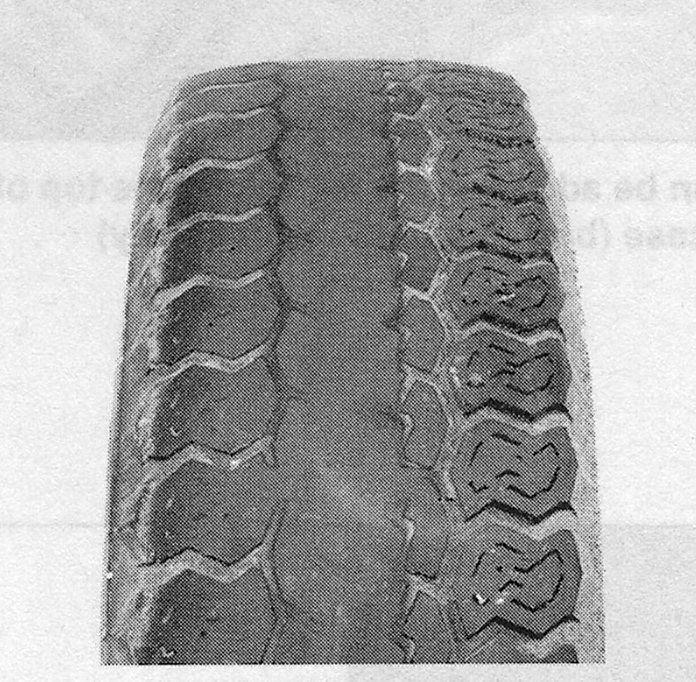 INCORRECT TOE-IN OR EXTREME CAMBER
INCORRECT TOE-IN OR EXTREME CAMBER
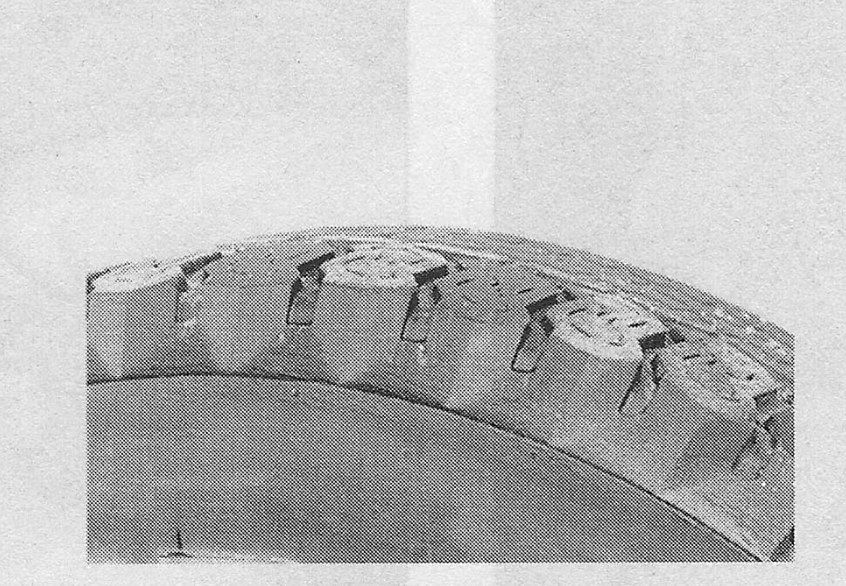 CUPPING
CUPPING
Cupping may be caused by:.
- Underinflation and/or mechanical irregularities such as out-of-balance condition of wheel and/or tire, and bent or damaged wheel.
- Loose or worn steering tie-rod or steering idler arm.
Loose, damaged or worn front suspension parts.
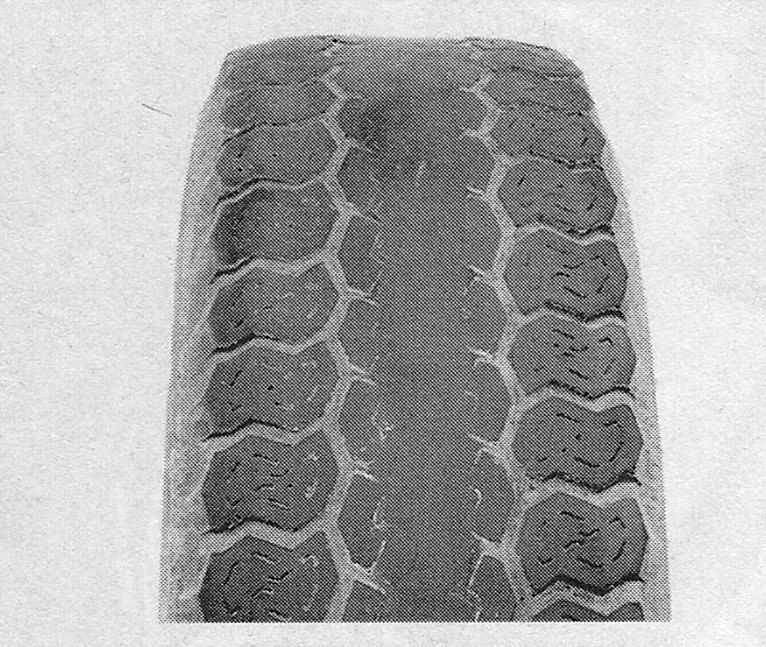 OVERINFLATION
OVERINFLATION
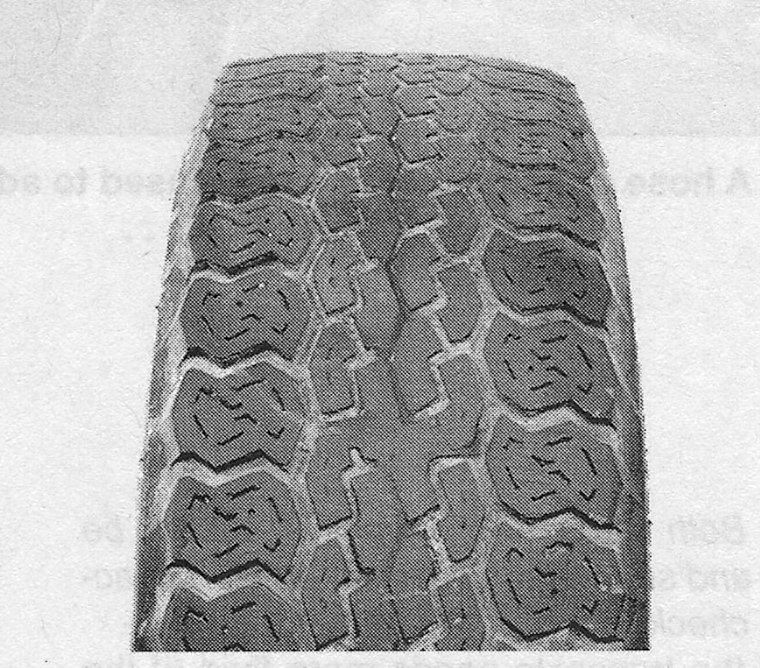 FEATHERING DUE TO MISALIGNMENT
FEATHERING DUE TO MISALIGNMENT
4. Look closely for cuts, punctures and embedded nails or tacks. Sometimes a tire will hold its air pressure for a short time or leak down very slowly even after a nail has embedded itself into the tread. If a slow leak persists, check the valve core to make sure it is tight (see illustration). Examine the tread for an object that may have embedded itself into the tire or for a plug that may have begun to leak (radial tire punctures are repaired with a plug that is installed in a puncture). If a puncture is suspected, it can be easily verified by spraying a solution of soapy water onto the puncture area (see illustration). The soapy solution will bubble if there is a leak. Unless the puncture is inordinately large, a tire shop or gas station can usually repair the punctured tire.
5.4a If a tire loses air on a steady basis, check the valve core first to make sure it’s snug (special inexpensive wrenches are commonly available at auto parts stores)
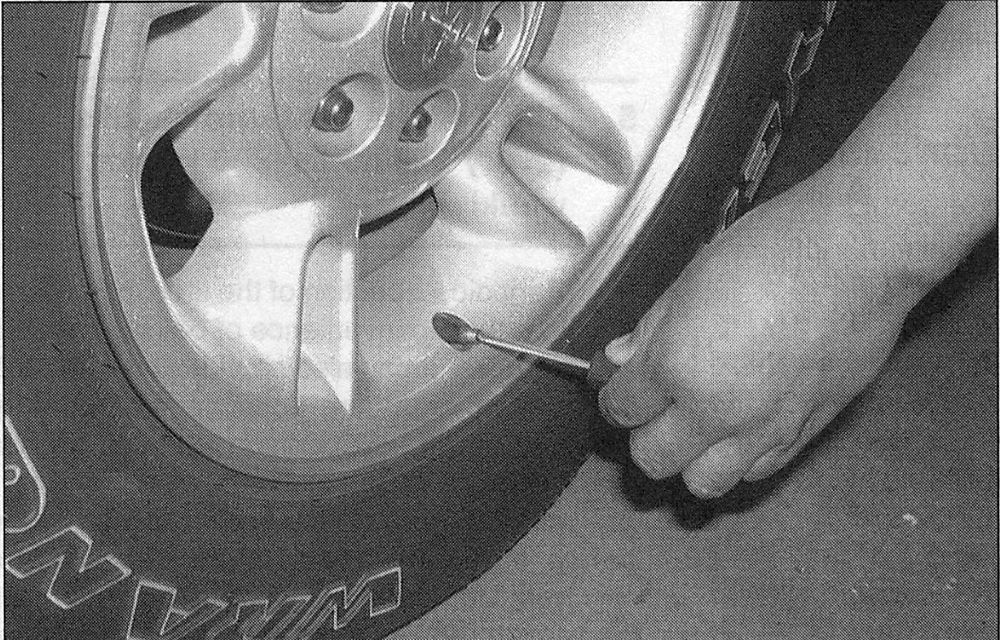
5.4b If the valve core is tight, raise the corner of the vehicle with the low tire and spray a soapy water solution onto the tread as the tire is turned slowly — slow leaks will cause small bubbles to appear
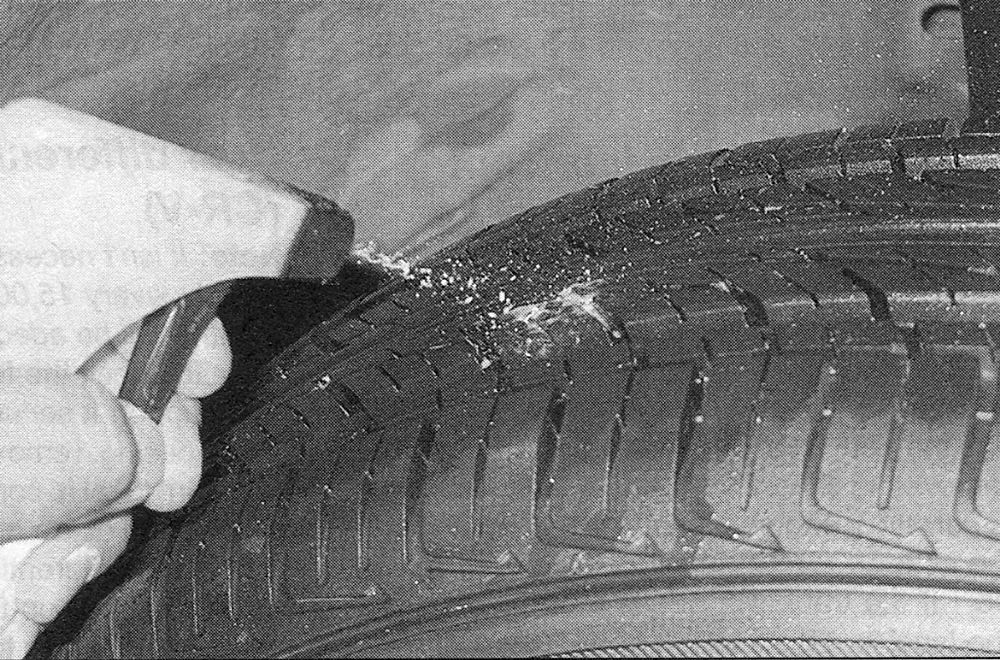
5. Carefully inspect the inner side of each tire for evidence of brake fluid leakage. If you see any, inspect the brakes immediately.
6. Correct tire air pressure adds miles to the lifespan of the tires, improves mileage and enhances overall ride quality. Tire pressure cannot be accurately estimated by looking at a tire, particularly if it is a radial. A tire pressure gauge is therefore essential. Keep an accurate gauge in the glove box. The pressure gauges fitted to the nozzles of air hoses at gas stations are often inaccurate.
7. Always check tire pressure when the tires are cold. «Cold,» in this case, means the vehicle has not been driven over a mile in the three hours preceding a tire pressure check. A pressure rise of four to eight pounds is not uncommon once the tires are warm.
8. Unscrew the valve cap protruding from the wheel or hubcap and push the gauge firmly onto the valve (see illustration). Note the reading on the gauge and compare this figure to the recommended tire pressure shown on the tire placard on the left door jamb or in your owner’s manual. Be sure to reinstall the valve cap to keep dirt and moisture out of the valve stem mechanism. Check all four tires and, if necessary, add enough air to bring them up to the recommended pressure levels.
5.8 To extend the life of your tires, check the air pressure at least once a week with an accurate gauge (don’t forget the spare!)
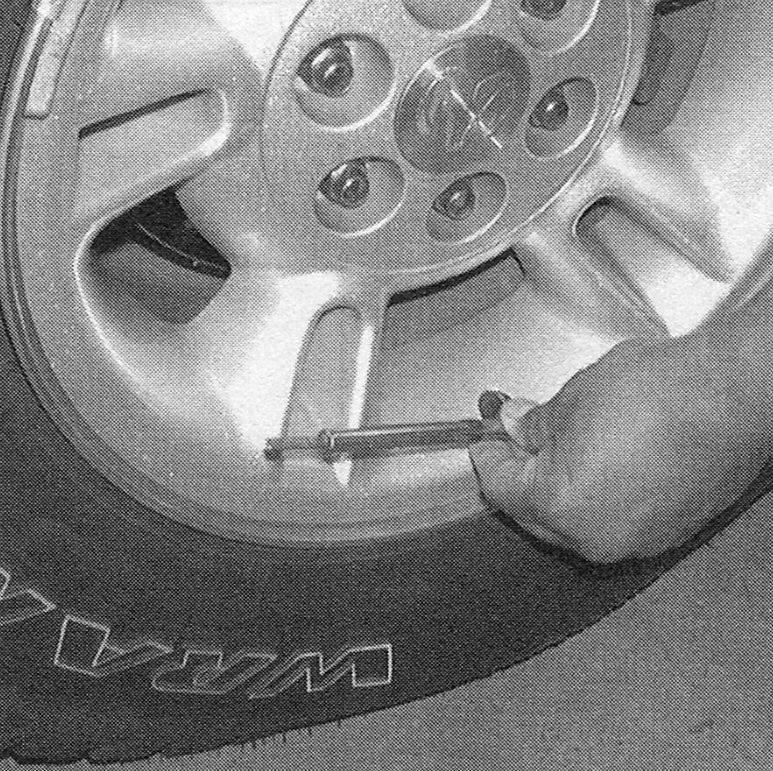
9. Don’t forget to keep the spare tire inflated to the specified pressure (consult your owner’s manual). Note that the air pressure specified for the compact spare is significantly higher than the pressure of the regular tires.